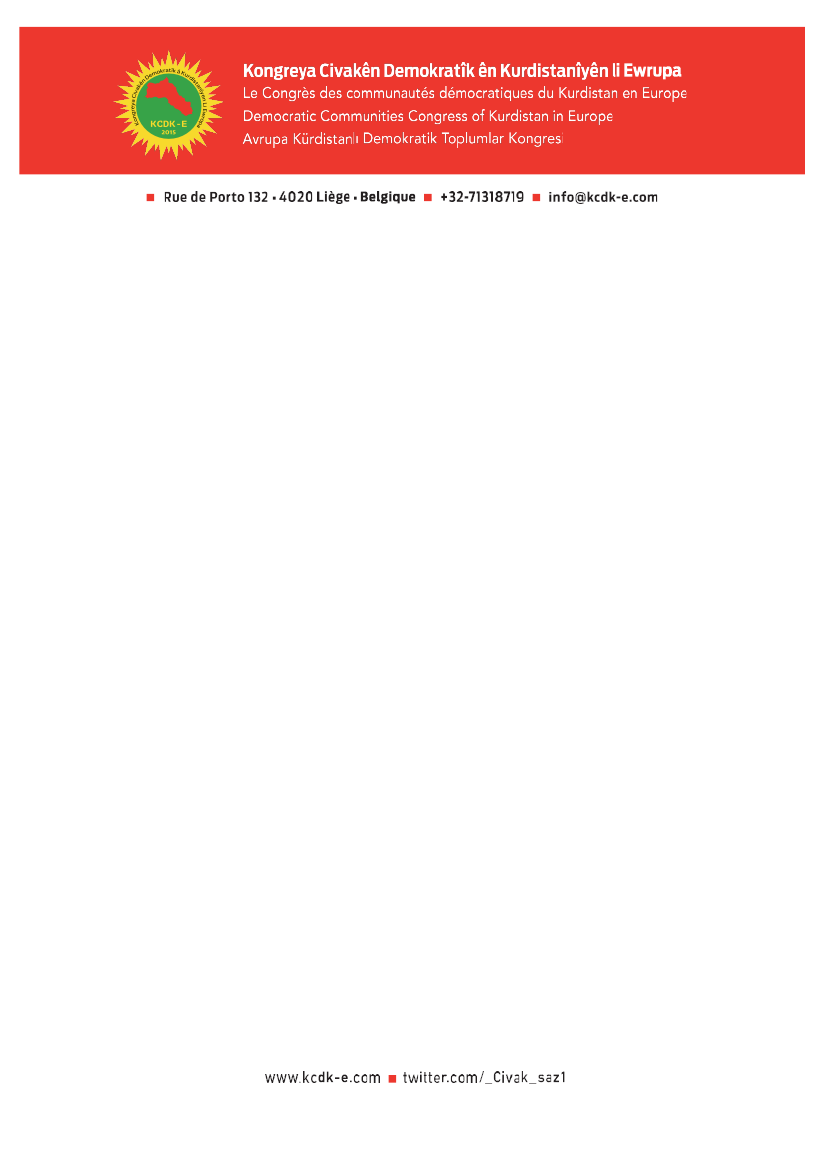
Turkish use of chemical weapons in Southern Kurdistan (Northern Iraq)
Turkish military offensive in Southern Kurdistan
Since 23
rd
June 2021, the Turkish army has been conducting a cross-border military operation against
positions of the Kurdistan Workers' Party (PKK) in southern Kurdistan (northern Iraq). The offensive,
which has been named “Operation Claw Lightning”, has caused numerous casualties on both sides. As
a result of widespread airstrikes by the Turkish Armed Forces, dozens of civilian settlements have had
to be evacuated, and numerous civilians have lost their lives.
The Turkish Armed Forces have a long history of running crossing-border military offensives deep into
Iraqi state territory. Since 1991, Turkey has also established dozens of military bases in the Kurdish
autonomous region in northern Iraq. More than 10,000 Turkish soldiers are permanently stationed in the
neighbouring country. In the recent operations, additional Turkish military bases and outposts have been
established.
In an attempt to justify the current ground and air invasion of Iraq, Turkey is invoking its right to self-
defence. According to an expert report by the Scientific Service of the Bundestag from 2020, however,
this justification is not tenable [1].
Rather, the report expresses doubts that the attacks of the Turkish Armed Forces in northern Iraq are
compatible with international law.
Impact of the operations on the civilian population
Little independent research is available from the areas directly affected by the Turkish attacks because
few independent and non-governmental organisations (NGOs) report directly from on the
the field. One of the few exceptions is the Southern Kurdistan-based NGO Christian Peacemaker Teams-
Iraqi Kurdistan (CPT-IK). CPT-IK has been monitoring the impacts on the civilian population since the
beginning of the Turkish offensive. Their first report on the topic was published on 3
rd
June 2021, under
the title “No Return: The Civilian Impact of Turkey's Operation Claw Lightning” [2]. The Human rights
organisation reports massive clashes between the Turkish Armed Forces and the PKK in the region.
Many of the Turkish air and artillery attacks have directly hit civilians: “While Turkey claims to to target
the PKK with its operation, it is actually civilians living in the border regions who are the ones most
affected by the Turkish bombardments. These bombings have devastated a region where hundreds of
families live. [...] Turkey's bombardments threaten not only the livelihood of the families, but also their
lives. Four civilians have been injured by the Turkish bombardments, and more than 1,500 civilians
from 22 villages have evacuated their villages to escape Turkish attacks.”
Use of chemical weapons
In addition to the widespread bombardment of civilian areas, the Turkish Armed Forces are also accused
of using chemical weapons in the course of the current military offensive. These accusations made by
the PKK have been corroborated by video recordings [3].
According to the reports, the Turkish Armed Forces have been using chemical weapons since the
beginning of its offensives, against the cave and tunnel complexes of the “People's Defence Forces”
(HPG). Due to the precautions that the HPG had taken before the start of the offensive, their guerrillas
suffered few initial casualties from the use of chemical weapons. However, according to the HPG, the
Turkish Armed Forces have been using a new chemical agent since the second half of September, which,